Learn more about the role of quality assurance in technical education – goals, objectives, and the processes involved. ABET, the US-based accreditor for engineering, computing and applied & natural science programs will provide an overview. Topics such as: 1) who is ABET? 2)the general philosophy behind the institutional and programmatic accreditation model; 3) what is the value of getting your programs accredited? 4) what is the global perspective of accreditation? 5) what’s the impact on the institution? 6) how does continuous improvement fit into the process? 7) what is outcomes-based education & assessment?
In addition, a more detailed discussion will focus on the details of getting individual programs accredited, and will include such topics as: the basic concepts of ABET accreditation, requirements, general and programmatic criteria, program educational objectives, student outcomes, continuous improvement, assessment & evaluation, development of the self-study report, construct of the ABET visit team, and accreditation actions.
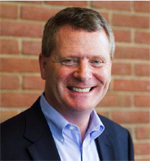 Michael K. J. Milligan is the Executive Director and Chief Executive Officer of ABET, the global accreditor of college and university programs in the STEM disciplines. In this role, Milligan is responsible for all aspects of ABET global operations and reports directly to the Board of Directors. Under his leadership, the organization has increased its geographical reach and diversity, now representing 35 member societies and over 3,700 accredited programs in 30 countries.
Michael K. J. Milligan is the Executive Director and Chief Executive Officer of ABET, the global accreditor of college and university programs in the STEM disciplines. In this role, Milligan is responsible for all aspects of ABET global operations and reports directly to the Board of Directors. Under his leadership, the organization has increased its geographical reach and diversity, now representing 35 member societies and over 3,700 accredited programs in 30 countries.
Prior to joining ABET, Milligan held various positions in government and academia, including 24 years in the U.S. Air Force. He served as associate professor and deputy department head in the Department of Electrical and Computer Engineering at the U.S. Air Force Academy, and later worked at the NASA Goddard Space Flight Center.
He earned his PhD from the University of Texas at Austin, his MS from the University of Massachusetts Lowell, and his BS from Michigan State University. Milligan also holds an MBA from Western New England College and is a Certified Association Executive. He is a senior member of IEEE, a member of Tau Beta Pi and Eta Kappa Nu engineering honor societies and a registered Professional Engineer in Colorado and Maryland.

|
Patrick Kane is the director of the Cypress University Alliance Program (CUA) at Cypress Semiconductor Corporation. The Cypress University Alliance Program is dedicated to partnering with academia to ensure that professors and students have access to the latest Cypress technology for use in education and research. Mr. Kane joined Cypress in July 2006. Before joining Cypress, Mr. Kane spent 13.5 years at Xilinx in a variety of technical and marketing roles including Applications Engineering, Aerospace and Defence, Automotive, Technical Training, and headed the Xilinx University Program (XUP). Prior to Xilinx, Mr. Kane spent a number of years at both Advanced Micro Devices and Lattice Semiconductor Inc. He holds ASEET, BSEE, and MBA degrees and has authored numerous articles and conference papers. Mr. Kane is currently pursuing the doctorate in educational technology. |
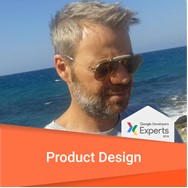
|
Panayotis Tzinis, Google Developer Expert Product Design – Machine Learning and Certified by Google Sprint Master. Panayotis (AKA Darth), is the lead of the Moonshot Lab’s X | Lab. The X Lab is a tech tank based on the planet of Mustafar, where crazy people, from scientists to artists, to developers to technologists, share their ideas in order to create moonshots! | |
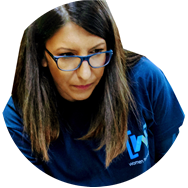
|
Irene Tsakiridou, Founder Moonshot Lab, GDG Greece Industry Rel., Women Techmakers Greece Lead, Project Manager. Irene Tsakiridou is the Lead of the Women Techmakers program for Greece, an Organizer at Google Developers Groups in the city of Thessaloniki & Heraklion. She is an Engineer, and a passionate about Technology and how it can improve everybody’s standards! Her main work is to help authorities and private companies to adapt, adopt and advance technology in their environment. |
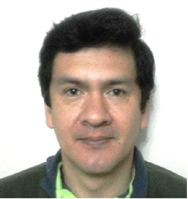
|
Arturo J. Miguel de Priego Paz Soldán, Academia de Ingeniería y Ciencia Escolar, Perú. I am an electronic engineer from the Pontifical Catholic University of Peru. I taught electronic engineering courses in Peruvian universities and STEM workshops in high schools both in the classroom and out-of-school. I design software and tutorials for the teaching and learning of electronics, computer science, mathematics, physics, chemistry, and robotics. Recently I won a contest of learning sessions and a few years ago a prize for a logic circuit simulator, which today is freely used in many Latin America and Europe high schools and universities. I have published articles on STEM education in international congresses. Currently I am promoting my academy to teach STEM in out-of-school settings while researching topics in renewable energy, artificial intelligence and machine learning. |

|
Maria Teresa Restivo, Senior Researcher at the Mechanical Engineering Department of the Faculty of Engineering, University of Porto, Portugal, degree in Solid State Physics, PhD in Engineering Sciences. Her research and teaching activities are within the Automation, Instrumentation and Control Group of the Mechanical Engineering Department at the Faculty of Engineering, and with the System Integration and Process Automation Research Unit, which coordinates, funded by the Portuguese Science and Technology Foundation. These activities are related with sensors developments and applications, development of online available instrumented devices focused on health area and in online experimentation, and in the use of emergent technologies in training and in education.
She is author (co) of articles, book chapters and books. She has been awarded prizes in education and in R&D areas. She has been project leader and team member at national and international levels. She has supervised a number of theses. She has five patents. She is member of the FEUP Scientific Council and Past President of International Society for Engineering Pedagogy. She has (ING-PAED IGIP) qualification.. |
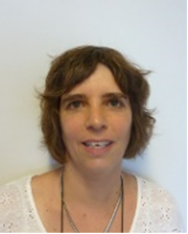
|
Diana Urbano – Auxiliary Professor at the Engineering Physics Department of the Faculty of Engineering of University of Porto (FEUP), Portugal. Diana Urbano has a degree and a PhD in Theoretical Physics. She has research in the area of Particle Physics. She lectures undergraduate Physics in several Engineering Masters Programs at FEUP. She has been recently integrated at a Unit of the the Associated Laboratory for Energy, Transports and Aeronautics (LAETA-INEGI/U.PORTO). Her research activities there are related with data analysis collected using devices developed there. These online available instrumented devices focus in health area as well as experimentation and the data analysis tools are used both in rehabilitation health area as well as in engineering education. In the context of this work she has published several conference papers and has been awarded with 2 prizes in education. She has participated in national and international projects. |
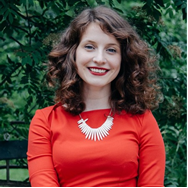
|
Maria Yu. Chervach, PhD student, Project Manager, National Research Tomsk Polytechnic University, Scientific and Educational Center “Management and Technology in Higher Professional Education”, Russia. Association for Engineering Education of Russia. Ms. Chervach is a project manager and researcher in Tomsk Polytechnic University, works in the field of higher professional education management. She is a part of AEER international projects expert team and has experience of project management including project planning, communication support, etc., coordinating and holding trainings, international conferences, and seminars. Ms. Chervach is a certified AEER expert on quality assurance in accreditation of engineering programs. Holds a Bachelor Degree in “Management of Organization” and a Master Degree in “Management in Science and Higher Education”. She is on preparation of her PhD thesis in field of “Theory and Methodology of Professional Education". |
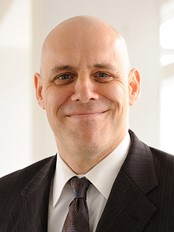 |
Edward Sarich is an associate professor at Shizuoka University of Art and Culture. He has an MA in Applied Linguistics from the University of Birmingham. He is interested in all issues concerning English education in Japan, particularly standardized testing and evaluation, communicative language teaching and second language vocabulary acquisition. Over the past five years, Edward has been an organizer and advisor of several cooperative English workshops. He is also conducting research on developing a cooperative English workshops methodology. |
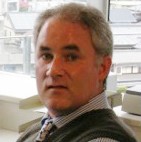 |
Mark D. Sheehan is currently an associate professor at Hannan University in Osaka, Japan. His research interests include academic reading, extensive reading, collaborative learning, and exploring ways to engage students with language through content-based English courses. |
 |
Jack Ryan is an associate professor at Shizuoka University of Art and Culture. He teaches courses such as Survey of English Literature, Global Issues, English Composition as well as English communication courses. He holds a Master of Education degree from Temple University. His research interests include content-based instruction, the future of English education in Japan and vocabulary acquisition. |
| 28 Mar 2018 | Submission of - structured abstracts (full, short paper) for the main conference - Special Session Proposals |
| 20 Apr 2018 | - Notification of acceptance for abstracts for the main conference - Special sessions notification and announcment |
| 04 Jun 2018 | Submission of complete papers for all submission types (plus trailer for GinEE Award) |
| 22 Jun 2018 | Notification of Acceptance |
| 30 Jun 2018 | Submission of Late Papers |
| 07 Jul 2018 | Notification of Acceptance of Late Papers |
| 27 Jul 2018 | Author Registration Deadline |
| 27 Jul 2018 | Camera-ready due |
| 25 Sep 2018 | Conference Opening |